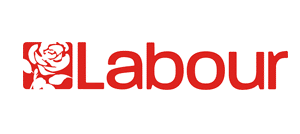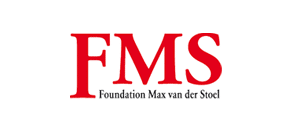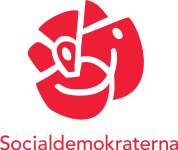Georgia
The long rule of the Georgian Dream party
In 2018, Prime Minister Georgi Kvirikashvili resigned from his post after waves of protests in the country and was succeeded by Mamuka Bakhtadze. He was the fourth Prime Minister of the ruling pro-European Georgian Dream (GD) party since it came to power in 2012. Since the presidential elections of 2013, GD has been in charge of both the presidency and the government and has held a majority in parliament. In the 2016 parliamentary elections, the coalition between GD and Democratic Georgia gained total victory for the second time. GD’s eight-year rule was extended once more, after the October 2020 elections. The ruling Georgian Dream party had been under observer member status of the Party of European Socialists (PES) since 2015. However, after Georgia’s Prime Minister Irakli Garibashvili participated in the Conservative Political Action Conference (CPAC) in Budapest, PES responded by publicly condemning the decision. Finally, on June 29, 2023, Georgian Dream was officially stripped of its observer member status. Georgian Dream’s conservative actions should not come as a surprise following its growing friendly and ideological ties with Viktor Orbán and other illiberal actors in Europe. The Georgian Dream Party has been accused of pro-Russian inclinations as the Party is founded and largely funded by oligarch Bidzana Ivanishvili, who has strong ties to Moscow and the Russian business industry.
Political crisis, 2020-21
After GD’s electoral victory in 2020, the outcome was denounced by the opposition parties, which accused them of rigging the elections and abusing their power. As a result, the opposition refused to enter parliament and protesters took to the streets. Furthermore, in February of 2021, opposition leader Nika Melia was convicted of organising “mass violence” at a 2019 protest, which escalated the already existent political conflict. To de-escalate the situation, Prime Minister Giorgi Gakharia stepped down and was succeeded by Irakli Garibashvili. However, Nika Melia was violently arrested the following day.
A political crisis lasted until April 2021, when a EU-backed deal between GD and opposition slowly ended the opposition’s boycot of Parliament and led to Melia’s release.
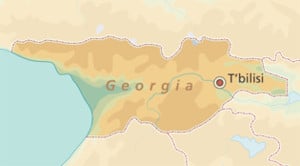
Continued instability
In July 2021, GD withdrew from the EU-backed deal which was meant to end Georgia’s political crisis. As GD continued to attack, prosecute, and undermine opposition forces, polarisation and disillusionment with the government grew: in August 2021, an investigation by NDI revealed that 51% of Georgian citizens believed there was no democracy in Georgia. Matters got worse in October 2021, when the opposition did not recognise the municipal election results and Mikhail Saakashvili, former President and opposition figure, was arrested in Tbilisi, leading to mass demonstrations and politicians going on hunger strike. In 2022, Georgia’s weak stance against Russian aggression led to further polarisation and anti-government sentiment. In 2023, concerns and mass protests again occurred when GD proposed foreign agent laws, which were later withdrawn and would have cracked down critical watchdogs and NGOs. Critics included President Zurabishvili, who frequently clashes with the government amid GD’s democratic backsliding.
Western integration
Support of a pro-European policy and Western integration remain popular among parliamentarians and civic society: 89% of Georgians are in favour of EU membership. After the Russian invasion of Ukraine, Georgia submitted its membership application in March 2022, ahead of the original planning. The European Commission decided that Georgia is eligible to become an EU member, but deferred granting Georgia the candidate status. Another top goal of most of Georgia’s political parties is NATO membership, although this is complicated due to Russian military presence in Abkhazia and South Ossetia. Furthermore, the country’s problems faces issues with unemployment, human rights and territorial integrity. The latter originates from a conflict with the breakaway regions Abkhazia and South Ossetia and a violent dispute between Georgia and Russia over South Ossetia in 2008. During the July 2023 NATO-summit in Vilnius, Georgia, unlike Ukraine, failed to see any progress on its membership bid. Further significant consolidation of authoritarian power in Georgia may severely hinder its Western integration. Georgia’s future heavily relies on two factors: whether the Georgian Dream Party will stay in leadership after the 2024 elections and whether the EU will grant Georgia candidate status before or after these elections. Should this occur before the elections, it might legitimise the rule of the incumbent government. However, if Brussels rejects the candidate status before 2024, this might strengthen Eurosceptic sentiments in Georgia which then might lead to further Russian influence and worse democratic backsliding. With new elections coming closer, the Georgian situation remains highly relevant yet uncertain.
-
Want to get notified by mail when this country gets updated?
Subscribe to our newsflash below!
Key Info
1 Political Situation
1.1: Russia-Georgia relations
The 2008 war
Relations between Georgia and Russia are characterised by tensions between the two countries, which have regularly erupted into violence. The 2008 Russia-Georgia war, which lasted 12 days, is the most prominent example. A priority spelt out by then-president Mikhail Saakashvili after his election in 2004, was to try and bring back the renegade regions of Abkhazia and South Ossetia under Georgian authority. After Saakashvili quickly established authority in Adjara, he shifted attention towards both separatist regions. This increased tensions with Russia, which has spoken out against Georgian NATO and EU accession. These tensions were already present with the pro-Western change of power in Georgia as part of the 2003 Rose Revolution. In August 2008, tensions between Russia and Georgia started escalating. An incident of a Russian spy plane shot down over Georgian territory resulted in a brief full-scale war. At the end of this war in which Russia was an aggressor, Kremlin-supported puppet regimes claimed territorial control over parts of Abkhazia and South Ossetia, and were consequently recognised by the Kremlin. However, according to international law, both regions remain part of Georgian sovereign territory.
The initial international response gravely condemned Russia for its actions and demanded withdrawal from Georgia. Specifically, the US started lobbying intensively for a sped-up Georgian accession to the NATO; something which European countries were somewhat divided about, despite equally condemning Russia. As time went by and investigations were launched, however, more and more reprimands started to appear towards the Georgian side as well as the Russian side. In October/November 2008 an independent international investigation group was created to look into the August events, headed by Heidi Tagliavini, a Swiss diplomat who served as UN Secretary General’s special representative to Georgia from 2002 to 2006. The report eventually put the blame on both sides.
The war’s aftermath
After the war, both Georgia and Russia attempted to normalise relationships between both countries. A Georgian-Russian deal allowed Russia to proceed with its World Trade Organization application. In 2012, Georgia introduced visa-free entrance for Russian passport holders. From the Russian side, a 7-year embargo on Georgian wine, one of the countries primary export products, was lifted in 2013. In October 2014, Russia eased visa procedures for Georgian citizens. However, the normalisation of relations between both countries failed to bring an end to the dispute over the breakaway regions, and support among the Georgian population for dialogue with Russia depleted over time.
Effects of the Ukraine War
The Russian invasion of Ukraine has raised concerns in Georgia. The war raises the question of whether Russia will further neglect Georgia’s territorial integrity. It resulted in calls to retake South Ossetia and Abkhazia and in Georgia’s accelerated application for EU membership, the process for which it had already begun before the war. However, it also led to a dramatic expansion of the far-right and anti-western group called Alt-info, which also launched a political party.
After Putin announced a partial mobilisation of military reserves in September 2022, long queues formed at the Georgian border. As one of the few neighbouring countries to which Russians can travel visa-free, Georgia has already hosted thousands of Russians fleeing conscription.
Georgia has condemned Russia’s incursion into Ukraine and continues to support Kyiv politically and diplomatically. However, Georgia has not participated in applying sanctions against Russia. As a result, Georgia is not on the Kremlin’s list of unfriendly countries. Many consider Georgia’s condemnation of Russia as ingenuine. Notably, Georgia’s president Salome Zourabichvili, who often clashes with GD, was taken to court by GD due to her outspoken support for Ukraine. Furthermore, Georgia-Russia trade ties have expanded amid the Ukraine War. Journalists and activists who are critical of Russia are also increasingly denied entry into Georgia. Another important symbolic move took place in May 2023, when Russia abolished visas for Georgians and lifted a ban on direct flights between Russia and Georgia, leading to protests.
1.2: Democratic backsliding
Areas of concern
Since 2012, the Georgian Dream (GD) coalition is in power with, currently, a constitutional majority in parliament. According to Freedom House, “Georgia holds regular and competitive elections. Its democratic trajectory showed signs of improvement during the period surrounding a change in government in 2012–13, but recent years have featured backsliding. Oligarchic influence affects the country’s political affairs, policy decisions, and media environment, and the rule of law is undermined by politicization. Civil liberties are inconsistently protected.” Areas of concern include media freedom, with an unprecedented number of physical assaults on journalists in 2021. Moreover, there is still a lack of accountability for abuse among law enforcement. Georgia also has a disproportionately strict drug policy and a long history of discrimination against the LGBTI community. In 2021, Human Rights Watch also reported a setback for Georgia. The NGO mentioned crimes committed by law enforcement agents, police violence, the lack of freedom of assembly, attacks on journalists, threats to media pluralism, unsafe working conditions, and a lack of justice reforms. In 2023, concerns further grew when GD proposed foreign agent laws which would have cracked down critical watchdogs and NGOs. The law was later withdrawn.
Opposition parties
Opposition forces are structurally undermined by GD, for instance through attacks and arrests. Notably, opposition party United National Movement (UNM) has claimed that its prominent members are subjected to politically motivated investigations and trials, with its founder Mikhail Saakashvili unable to formally lead the party having lost his Georgian citizenship in 2015, after gaining the Ukrainian citizenship, and unable to return to Georgia as he is wanted by Georgian authorities. In a similar manner, in February of 2021, the UNM’s leader Nika Melia was convicted of organizing “mass violence” during a 2019 opposition protest. The party claims the following arrest was purely politically motivated. Even though Melia was granted amnesty for the 2019 protests, the struggle between the UNM and GD continues.
Bidzina Ivanshvili
There are also some concerns surrounding the role of GD founder and former Prime Minister Bidzina Ivanishvili: there are allegations that he still wields quite some power behind the scenes while not having any formal (political) position. Ivanishvili’s wealth has given him a distinct position of power in Georgian politics – his personal wealth is the same as one-third of Georgia’s GDP. Informal actors having a big influence on political choices continues to be a challenge for Georgia. Additionally, critics say the judicial branch does not work independently from the government and the parliament, whose interests often affect the judges’ decisions. For these reasons, Georgia has often been criticised for being an oligarchy.
1.3: Georgia’s EU bid
Developments after March 2022
Georgia has aspired EU candidacy status since the Russian invasion of its northern provinces Abkhazia and Northern Ossetia. Its pathway to become candidate in 2024 has been accelerated due to the Russian invasion of Ukraine, subsequently handing in its EU bids alongside Moldova and Ukraine in March 2022. In June 2022, Ukraine and Moldova acquired a positive EU endorsement, while Georgia remained empty-handed. The commission said that Georgia still has to fulfil key conditions on political polarisation, media freedom, judicial reform, and “de-oligarchisation”, before granting a positive recommendation towards EU candidacy. This led to several pro-EU and anti-government rallies.
“De-oligarchisation”
The “de-oligarchization” of Georgian society will be presumably be the key condition for Georgia to acquire EU candidacy. The current government, led by the Georgian Dream party is under major influence of oligarch Bidzina Ivanishvili – whose capital equivalates one-third of Georgia’s GDP. Earlier in June, the European Parliament passed a nonbinding resolution that called for sanctions on Ivanishvili for his “destructive role” in Georgian politics. Furthermore, the Georgian Dream-led administration has cracked down on media freedom, civil society and judicial independence. This all has been a major shake-up of Georgia being a frontrunning candidate for EU aspirations in Eastern Europe. The deferral of the European Commission led tens of thousands of Georgians to rally on June 20 in the capital Tbilisi.
Recent developments
Shortly after the candidate application, Georgia was presented with twelve priorities that it would have to implement to obtain candidate status. The European Commission recommended in its 2023 enlargement report that the country be granted candidate status on the basis of the reforms implemented. Namely, nine of the twelve areas are already addressed, which the Commission says highlights the country’s commitment to reform. Steps have been taken in the areas of fundamental rights and gender equality. Corruption and organised crime are slowly being parried by reforms but these are far from sufficient. The economy is experiencing positive developments and meets the criteria in many areas. However, polarisation in politics limits Georgia’s European path. Internal tensions between proposition and opposition hold back implementation of reforms. De-oligarchisation is a key issue that deserves a lot of attention. Foreign – read Russian – interference in Georgian politics, disinformation, and unfair elections also need to be addressed. The Commission also hints that providing candidate status is an achievement of the Georgian people – and not of politicians (and especially the ruling party). Many reforms are still needed before Georgia can take new steps towards opening negotiations, and the country’s elections in late 2024 can only further increase political polarisation.
1.4: National minorities in Georgia
Georgia is a multilingual and multi-ethnic country. National minorities enjoy full (political) rights under the constitution and make up of 13% of Georgia’s population according to a 2014 census. The two largest national minority groups in the country are the Azeri (6%) and the Armenians (5%). Although Azeri and Armenians minority groups hold Georgian passports, they often consider themselves to be citizens of Azerbaijan and Armenia. Besides these groups, a variety of smaller groups live within the state borders. Nonetheless, studies commissioned by Carnegie in September 2020 that minorities showed that they consider themselves to be loyal towards the Georgian state. Only 16% considered their ethnicity more important than their Georgian citizenship. Because minorities do not always speak Georgian, their level of political participation is relatively low. Language barriers between speakers of Georgian and minority languages are considered to reinforce alienation of ethnic minorities. However, especially in the run-up to the latest presidential election, more information in Armenian, Azeri, Ossetian and Russian was provided.
There are no ethnic political parties, although several parties have included members of national minorities in lists and as majoritarian candidates, nominating them in districts where minorities form a substantial part of the population. To enhance integration of minorities in Georgia, the government established the Civil Integration and Tolerance Council. To further improve the integration of ethnic minorities in civic-nation building in Georgia, practical steps need to be taken to create a strategy which oversees equal and complete involvement of minorities in Georgian politics and society.
1.5: Gender participation and women’s rights
While there are no legal obstacles for women, Georgian politics remain dominated by men. Previously, Nino Burjanadze was the woman to hold the highest political function, but she left the then-ruling UNM shortly before the parliamentary elections of 2008. However, in recent years there have been some improvements regards to gender inclusion in Georgian politics. Salome Zourabichvili was elected as Georgia’s first female President in December 2018. In 2020, there have also been several electoral changes that guarantee participation of women in politics. Political parties require at least a quarter of their elected representatives to be female. This had led to at least 30 women out of a total of 150 MPs being elected.
On a local level, politics remains more male-dominated. A career in politics is often seen as something ‘unfeminine’ in Georgian society, mainly because the political scene is often described as “rough-edged” and influenced by a “machoculture”. Moreover, many women quit university when they marry or get pregnant and exchange their education for the family. Georgia has made much progress when it comes to adopting anti-discrimination legislation. However, gender stereotypes remain deeply rooted and a significant gap continues to exist with regards to economic participation and opportunities.
1.6: LGBTI rights
As Georgia became more influenced by highly traditional Orthodox Christian values after the fall of communism, public opinion towards LGBTI people remains negative. Georgia’s LGBTI community faces discrimination and challenges that non-LGBTI people do not have to face. Abuse and physical violence towards LGBTI people remains common as well, although discrimination against LGBTI people is prohibited by law. Same-sex marriage remains prohibited, and was even constitutionally banned in 2018. In 2023, the government submitted a ‘queer propaganda’ bill to the Parliament, which was meant to seriously demonise LGBTQ-people
Prominent examples of structural violence against the LGBTQI-community in Georgia include the frequent attacks and disruptions that take place at Tbilisi Pride. For instance, in 2021, attacks and threats led to the cancellation of the Pride march. On the 8th of July 2023, the Pride festival in Tbilisi was stormed by up to 5,000 members of violent far-right and pro-Russian groups, which led to its cancellation. The ‘protesters’ included Orthodox Christian clergy and waved Georgian flags while carrying religious icons. After marching toward the site of the event, they vandalised the stage, burned rainbow flags, set fires, looted the event’s bar, and played traditional Georgian folk music.
Organisers of Tbilisi Pride believe that the disruption was preplanned and coordinated between the government and radical groups. They believe the Ministry of Internal Affairs to have collaborated with a violent, conservative group called ‘Alt-Info’, a group which has also organised a demonstration in 2022, protesting against both the gay parade and European integration. Georgia’s European integration and initiatives that rally for proper LGBTQIA+ rights seem closely connected in the minds of conservative, far-right groups. However, freedom of assembly and speech for all are key aspects of any democratic society, and this is not merely related to the European Union’s values.
Interior Minister Alexander Darakhvelidze and chairman of Georgia’s parliament Shalva Papuashvili, both members of the ruling Georgian Dream party, defended the conduct of the police. Papuashvili stated that “the police had an appropriate response” and “properly ensured the safety of both participants and journalists.”
What is highly concerning is not only the tragic violence at the Georgia Pride event, but also the way in which government authorities have fuelled this, both allegedly, by cooperating with far-right groups and indirectly, by spreading anti-LGBTQIA+ sentiments. For example, in a speech at the annual Conservative Political Action Conference (CPAC), Prime Minister Irakli Garibashvili spoke about forces who are “destructing the traditional family values and coercing false freedoms through LGBTQIA+ propaganda and attempts to legislate gender-affirming procedures for children”, stating that he wants to protect “the rights of the majority, for whom the family is a union between a man and a woman; where a woman is a mother, and a man is a father.” and proudly stating: “We protect the rights of the vast majority of the population, who supported my initiative in 2014, upon which our political party later included in the Constitution the definition of the marriage as the union between a man and a woman.”
2 Elections
2.1: Electoral system
Presidential elections
Georgia initiated constitutional changes to the electoral law in 2017, which included that from 2024 onwards, the President of Georgia is elected through an open ballot system without prior debate in the Parliament. The presidency term will be for five years, with the transitional period (2018-2024) being an exception with six years. The 2018 presidential elections were the last ones to be held through a direct ballot system, in which the mandate was transferred to the college of electors. This college included MPs, local and regional government representatives. A president can only serve two terms and is eligible from the age of 40. The president must also have lived in Georgia for at least 15 years.
Presidential candidates must obtain at least 50% of the votes and if this threshold is not met, a second round takes place in which the number one and two run against each other. The candidate with the most votes received will become the president.
Parliamentary elections
The Parliament, which has one-chamber with 150 seats, is elected for a term of four years through parliamentary elections.
The 2017 constitutional changes also include that the Members of Parliament (MPs) are still chosen in two stages, but that the ratio and thresholds are different. 120 of the 150 MPs are elected through proportional representation, in which they have to reach an electoral threshold of 3% instead of 5%. The remaining 30 MPs are chosen through single-member constituencies in a second round. This means that parties choose candidates who will run on a district level. These participants have to obtain at least 50% of the votes in order to become part of parliament. If this threshold is not reached, the winner and the runner up will participate in another round to determine who gets the seat. Due to this new electoral system, the Georgian parliament became more diverse with an increased number of mainly smaller parties.
In future parliamentary elections, the parliament will fully transfer to proportional representation. A majority of the Georgian parliamentary parties support a 2% threshold for the 2024 parliamentary elections to encourage more political pluralism. Decreasing the threshold is also part of the Charles Michel agreement, which is important for Georgia’s democratisation and European integration processes. From the 2024 parliamentary elections onwards, it is also forbidden to form an electoral bloc to meet the threshold requirement. Votes of parties that fail to cross the threshold will be entirely awarded to the winner.
2.2: Parliamentary elections
On 31 October 2020, the first round of the Georgian parliamentary elections took place. Quickly after, it became clear that the biggest party, Georgian Dream (GD), had obtained the vast majority of seats again. This meant that GD would continue their eight-year rule, because it would not have been possible for the opposition to obtain a majority during the upcoming constituency round. However, the opposition parties did not accept the outcome and even rejected to enter parliament. They called for civilian protests, leading to mass-demonstrations in front of the parliament building. After the second round was completed on 21 November, GD had a total of 90 seats. The largest opposition bloc, Strength is in Unity-United Opposition, obtained 36 seats. European Georgia got five seats, and Lelo for Georgia, Strategy Aghmashenebli and Girchi each received four. The smallest parties are Citizens with two seats and the Georgian Labour Party with one seat.
Election results
| Party | % votes proportional lists | Total seats |
| Georgian Dream | 48.22% | 90 |
| UNM-led Strength is in Unity-United Opposition | 27.18% | 36 |
| European Georgia | 3.79% | 5 |
| Lelo for Georgia | 3.15% | 4 |
| Strategy Aghmashenebli | 3.15% | 4 |
| Alliance of Patriots of Georgia | 3.14% | 4 |
| Girchi | 2.89% | 4 |
| Citizens | 1.33% | 2 |
| Georgian Labour Party | 1% | 1 |
Election observers
International observers from the OSCE have said that the 2020 parliamentary elections were competitive and that the political rights were overall respected. However, they did also mention that there had been some shortcomings, which led to a lower public confidence in the electoral process. The lines between Georgian Dream as a ruling party and the state were blurred during campaign time and there had been pressure on voters. Furthermore, the National Democratic Institute pointed out that there were cases of voter intimidation in and around multiple ballot stations and alleged pre-elections abuse of power. The European Union stated that it expected and hoped that all political parties would set aside their differences and enter parliament. In addition, United States (US) Secretary of State Mike Pompeo visited Georgia during election time, while thousands of people were protesting against the results of the first round. He did not make a statement regarding the outcomes, but he did say that the US would continue to support the country in building strong institutions and ensuring free and fair elections.
Aftermath
After the 2020 elections, several split-offs took place, which shook up the composition of the parliament several times. In January 2020, when opposition parties were still boycotting Parliament, four members of the Pro-Russian Alliance of Patriots party left the faction and entered Parliament. Four other members of the party created the European Socialist party. These MPs, along with others from the Citizens party, were the first ones to enter Parliament despite the boycott. Eventually, in April 2021, due to EU mediation, GD and opposition signed a deal which ended the boycot. However, in July 2021, GD withdrew from the deal, which led some MPs to leave parliament again. Furthermore, in June 2021, former PM Giorgi Gakharia launched a new party, For Georgia, as a 5-seat split-off from Georgian Dream. In August 2022, another split-off from GD was founded: The People’s Power Party. More GD MPs resigned after the party introduced the controversial foreign agents bill.
2.3: Presidential elections
On 28 October 2018, national presidential elections were held in Georgia to elect a successor for outgoing president Giorgi Margvelashvili. This round of elections ended neck and neck for the two top candidates for the position of president: Salome Zurabishvili, an independent candidate backed by Georgian Dream, and Grigol Vashadze, running on behalf of the Strength in Unity movement, an opposition alliance led by the United National Movement (UNM). Davit Bakradze (European Georgia) and Shalva Natelashvili (Labour Party) came in third and fourth respectively. The other 21 candidates garnered less than 3%of the votes each. Since no candidate garnered the majority of votes needed to secure immediate victory, a second-round was held between Zurabishvili and Vashadze on 2 December 2018. It was the first time in Georgia’s history a second round was needed in a presidential election
The second round was held on 28 November 2018. With 59.52 per cent of the votes, Georgian Dream supported candidate Salome Zurabishvili won the presidential elections in a runoff against the United National Movement opposition candidate, Grigol Vashadze. The Central Election Commission confirmed the result and said that the turnout was 56 per cent, which was 9 per cent higher than in the first round. Zurabishvili became the first female president of Georgia.
| Candidate | Candidate | Votes % first round | Votes % second round |
| Salome Zurabishvili | Independent – backed by Georgian Dream | 38.63 % | 59.52% |
| Grigol Vashadze | Strength in Unity Movement | 37.74 % | 40.48% |
| Davit Bakradze | European Georgia | 10.97 % | – |
| Shalva Natelashvili | Labour Party | 3.75 % | – |
Election observers
International watchdogs who closely monitored the elections on the ground in Georgia have been predominantly positive about the way they were conducted. The OSCE has stated that overall, the elections were calm and voters had a free and genuine choice, though some violations of electoral laws have taken place. The European External Action Service (EEAS) has stated that it agrees with these conclusions. Other watchdogs, like the International Society for Fair Elections and Democracy (ISFED), the Georgian Young Lawyers Association (GYLA), the National Democratic Institute (NDI) and Transparency International (TI), have all noted that violations did take place, but that they have not significantly altered the elections or their outcome. All of these organisations noted the practice of several political parties trying to influence, or even bribe, voters, and have filed complaints against these misconducts.
3 Political Parties
Social Democratic Parties
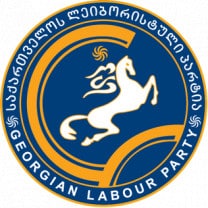
The Georgian Labour Party (SLP) was founded in 1995 by Shalva Natelashvili. It is a centre-left faction that stands for social democracy, populism and pro-Europeanism. The SLP had not been in parliament since 2012, but managed to get 1 seat during the 2020 elections.
Other Parties

The party evolved from the public movement Georgian Dream, launched by Ivanishvili as a platform for his political activities in December 2011, soon after he announced that he would be entering politics. Since Ivanishvili was stripped of his Georgian passport – officially because of having other passports as well – lawyer Manana Kobakhidze was elected as an interim, nominal chairman of Georgian Dream-Democratic Georgia. In 2012 GDDG won the parliamentary elections, and Ivanishvili became the Prime Minister. However, he only stayed PM for one year, as initially promised, to get the changes going and then ‘retire’ from politics. Nevertheless, it is widely believed that he still has a huge amount of influence on the party and on Georgian politics.
Strength is in Unity is a political coalition estbalished in July 2018. A total of ten parties are part of this opposition alliance: United National Movement, Serve Georgia, National Democratic Party, State for the People, European Democrats, Replublican Party of Georgia, Christian Conservative Party, Civil Alliance for Freedom, Georgia Among Leaders and For an New Georgia. The coalition is considered to be centre-right, liberal, pro-European and standing for populism and civic nationalism. The alliance gained 36 seats in the 2020 parliamentary elections but several people have left the faction and it currently holds 20 seats in parliament.
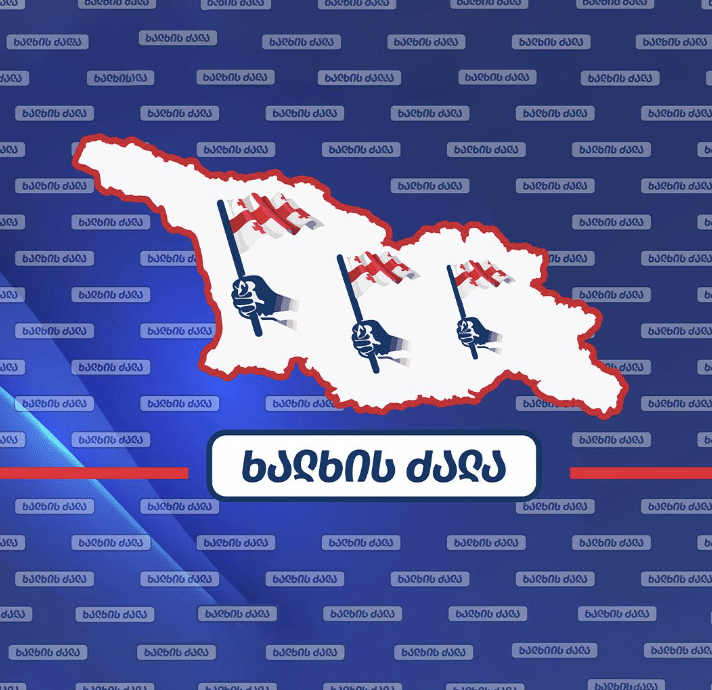
People's Power was founded by Georgian MPs Sozar Subari, Mikheil Kavelashvili and Dimitri Khundadze in August 2022, after they split from the ruling Georgian Dream. It now holds 9 seats in parliament. It has been described as sovereigntist.
For Georgia was founded in 2021 by former PM and party leader Giorgi Gahkaria, after several MPs left the Georgian Dream. Its ideology is based on anti-corruption, pro-Europeanism, reformism and technocracy. For Georgia holds 5 seats in parliament.

European Georgia was established in January 2017, predominantly by former members of the United National Movement (UNM), who broke away from the faction. It is a centre-right party, sharing most of its ideology with UNM. The party obtained 5 seats during the 2020 parliamentary elections.

Lelo for Georgia was established in December 2019, by Mamuka Khazaradze and Badri Japaridze, two businessmen. The party is considered to be centrist, liberal and pro-European. They first ran in the parliamentary elections of 2020, with the goal to end the eight-year rule of the establishment lead by Georgian Dream. They have 3 seats in parliament.
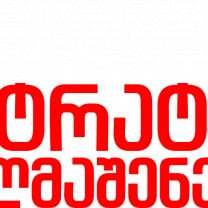
Strategy Aghmashenebeli was founded in June of 2016 by Giorgi Vashadze, who had left the United National Movement (UNM). During the 2020 parliamentary elections, the centre, liberal party was able to obtain 4 seats.
After the 2020 elections, four members of the Pro-Russian Alliance of Patriots party left the faction and created the European Socialist party. The party is centre-left and stands for social democracy and pro-Europeanism.

Girchi was founded in 2015, by Zurab Japaridze, Pavle Kublashvili, Goga Khachidze and Giorgi Meladze, who all left the United National Movement (UNM). The party is right-wing, stands for classical liberalism, pro-Europeanism and anarcho-capitalism and targets youngsters who want to become politically active. It rejects standard party structures and is the first online Georgian faction.
During the 2020 parliamentary elections, the party obtained 4 seats.
Citizens is a centrist, populist political party established by Aleko Elisashvili, who used to be an urban activist, denouncing the country’s establishment. During the 2020 parliamentary elections the faction ran for the first time and obtained 2 seats.
4 Biographies
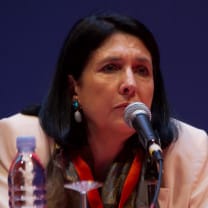
Salome Zurabishvili, born on 18 March 1952 in a Georgian migrant family in Paris, was elected as the first female President of Georgia with 59.52 per cent of the votes in November 2018. Zurabishvili grew up in France and spent most of her career in the French diplomatic service before joining Georgian politics. She moved to Georgia as the French ambassador, but in 2004, she was named Minister of Foreign Affairs in Georgia under former President Mikheil Saakashvili.
She later fell out with the president, and in 2006 Zurabishvili established a new party, ‘Georgia’s Way’. But the party was not able to compete with the existing parties and in 2007 it became part of the United Opposition alliance. In 2010 she announced her withdrawal from the leadership of Georgia’s way after disappointing results in the parliamentary elections and she quit politics altogether.
In 2013 Zurabishvili already tried to take part in the Presidential elections, but her participation was rejected by the Central Election Commission due to her dual citizenship.
In 2016 Zurabishvili was elected member of the parliament as an independent candidate, but her participation was supported by the ruling Georgian Dream. Her voting record and public statements were in line with Georgian Dream. In 2018 she announced her run for president again, as an independent candidate, backed by Georgian Dream, which had decided to not field its own candidate so as not to dominate all power positions in the country.
Salome Zurabishvili is not only the first female President but also the first President with a migration background.
After she became President, she has had several clashes with the GD party over its democratic backsliding.
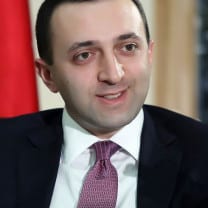
Irakli Garibashvili (born June 28, 1982) has previously served as Prime Minister of Georgia from November 2013 to December 2015. He resigned without an official reason, but it was assumed that his low approval ratings impacted the move. His Georgian Dream party enjoyed relatively low levels of support at the time as well. Garibashvili is one of Bidzina Ivanishvili's close allies. He has also served as Minister of Internal Affairs and as the chairman of the Georgian Dream.
From September 2019 till February 2021 Garibashvili was serving as the Minister of Defence. On 22 February 2021 he was reinstalled as Prime Minister of Georgia, after his predesessor Giorgi Gakharia resigned. Gakharia hoped to de-escalate the political situation the country was in after the conviction of opposition leader Nika Melia, which he did not approve of. One of the first things Garibashvili did was to order the immediate arrest of Melia.
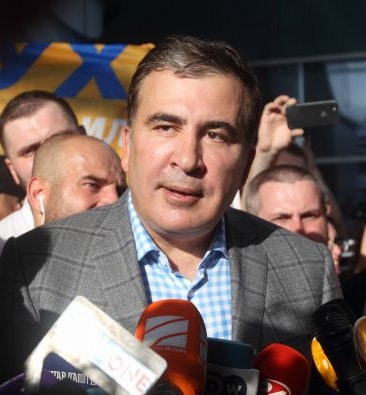
In 2003, Mikheil Saakashvili led the Rose Revolution, which resulted in the ousting of a post-Soviet government controlled by wealthy individuals. His platform promised to combat corruption and foster closer ties with the West. He even made constitutional changes to commit the country to full integration with both the EU and NATO. However, in 2008, his leadership during a conflict with Russia and his increasing authoritarian tendencies led to the alienation of many initial supporters.
Subsequently, Saakashvili was voted out in 2013 and later relocated to Ukraine. He took on roles such as the governor of Odesa and the head of President Volodymyr Zelensky's National Reform Council. In an absentia verdict, a Georgian court found him guilty of abusing his authority by pardoning police who had assaulted an opposition lawmaker. This verdict resulted in the revocation of his Georgian passport and a six-year prison sentence.
Yet, his flair for theatrics proved to be underestimated. In 2021, he clandestinely reentered the country, embarking on a public tour and openly challenging authorities to arrest him — a challenge they soon accepted. He is currently in prison while his health has been deteriorating severely.
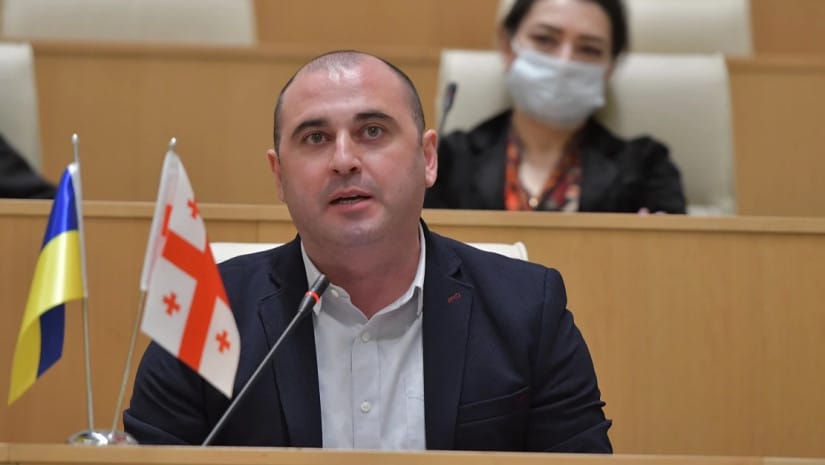
Levan Khabeishvili, born on May 7, 1987, is a notable Georgian activist and politician with a dynamic career. His involvement in public service commenced in 2008 as a local official. From a young age, he aligned himself with the United National Movement and actively participated in various capacities within Tbilisi's local bureaucracy and the Administration of President Mikheil Saakashvili.
Following President Saakashvili's departure from Georgia and Khabeishvili's own unsuccessful attempt in a local election in 2014, he found a new political home in the New Georgia party. Under this banner, he pursued a seat in Parliament in 2016, though his efforts were met with disappointment. The year 2017 marked a turning point as he secured a position in the Tbilisi City Assembly as a representative of UNM. This platform propelled him into a prominent anti-government role, where he consistently criticized the Georgian Dream-led administration, citing concerns of corruption.
In the realm of national politics, Khabeishvili's trajectory led him to become a Member of Parliament in 2020. However, his parliamentary journey has been characterised by instances of boycotts and notably low attendance. His approach to politics has earned him the label of a populist figure. Notably, in January 2023, he achieved a significant milestone by winning the position of Chairman of the United National Movement, triumphing over his predecessor Nika Melia.
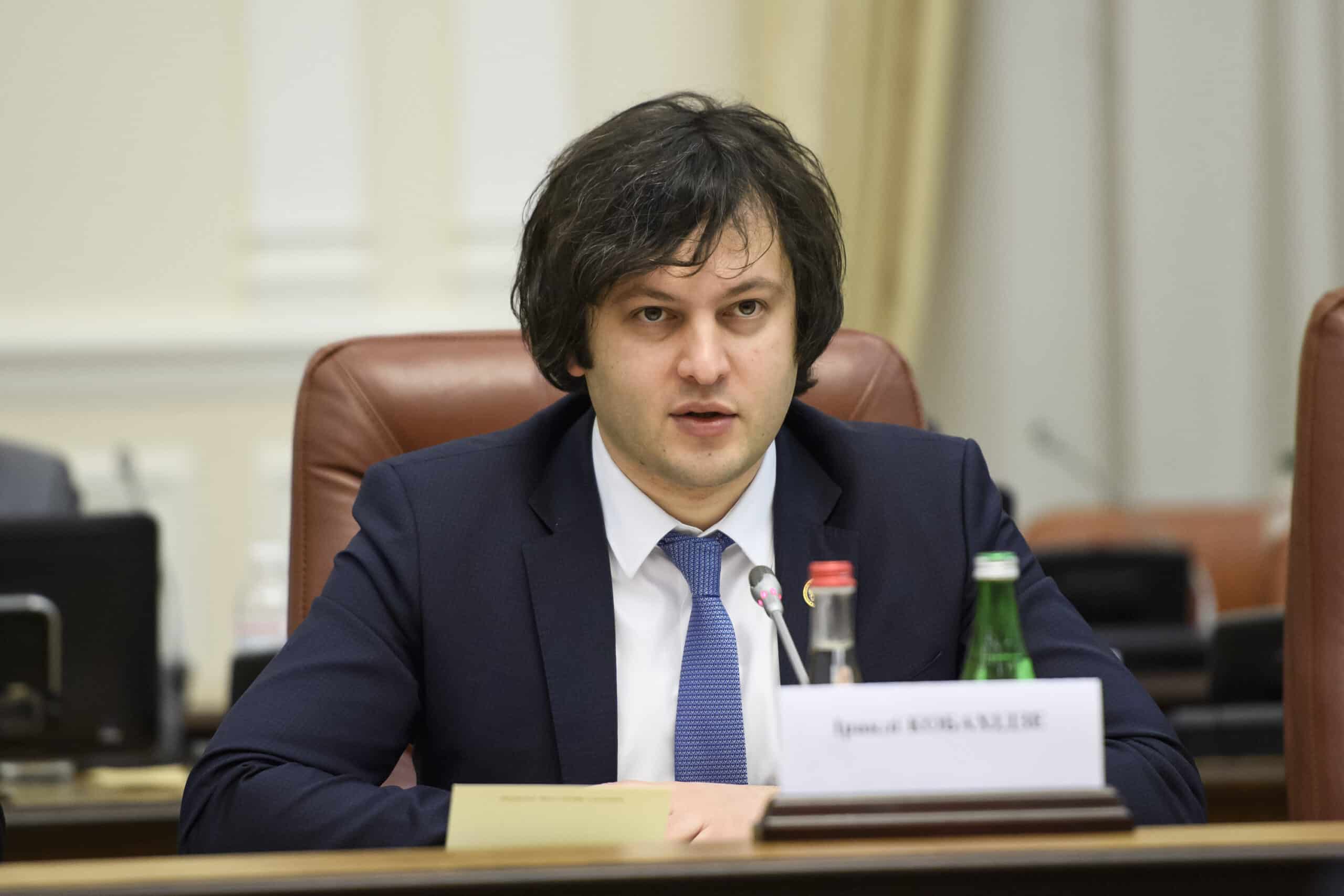
Irakli Kobakhidze, born on September 25, 1978, is a prominent Georgian statesman who has made significant contributions to his nation's political landscape. He held the esteemed position of Speaker of the Parliament of Georgia from 2016 to 2019 and has been an active Member of the Georgian Parliament since 2016.
Kobakhidze's affiliation with the ruling party Georgian Dream – Democratic Georgia was multifaceted. He served as the Executive Secretary and held a vital role as a member of the Political Council. Furthermore, he demonstrated his dedication to international engagement by assuming the position of vice-president of the Parliamentary Assembly of the Council of Europe. In the academic realm, Kobakhidze excelled as a Professor at Tbilisi State University. His influence extended to constitutional matters as he chaired the State Constitutional Commission and played a key role in editing the contemporary Constitution of Georgia.
One of Kobakhidze's most impactful accomplishments was guiding the Parliament of Georgia through an extensive constitutional overhaul. These reforms facilitated the establishment of a parliamentary system of government inspired by European models. Importantly, the reforms also enshrined the aspirations of EU and NATO integration as fundamental foreign policy goals for Georgia.
In response to statements made by Ukrainian officials during the context of the 2022 Russian invasion of Ukraine, Kobakhidze exhibited a commitment to peaceful conflict resolution. He challenged calls for military solutions to the Georgian-Abkhazian and Georgian-Ossetian conflicts and emphasised the importance of diplomatic efforts. Kobakhidze expressed concern about external pressures, suggesting that certain actors were attempting to manipulate Georgia's involvement in the conflict.
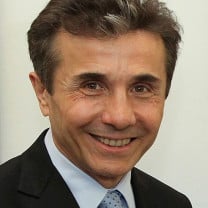
Bidzina Ivanishvili was born on February 18, 1956, in the village of Chorvila within the Sachkhere region of Western Georgia. With a diverse career spanning both politics and business, Ivanishvili left an indelible mark on his nation's landscape. Notably, he held the position of Prime Minister of Georgia from October 2012 to November 2013.
Ivanishvili's journey began at Tbilisi State University, where he earned a degree in Engineering and Economics in 1980. Seeking further academic pursuits, he pursued a PhD in economics at the Moscow State University of Railway Engineering in Moscow during the era of Perestroika and privatisation. He entered the realm of business during this period, amassing considerable wealth throughout Yeltsin's presidency. In 2002, he departed Russia and returned to his homeland of Georgia in 2003.
His political career commenced in 2012 when he established the Georgian Dream-Democratic Georgia party. Under his leadership, this coalition of opposition parties triumphed in the 2012 Georgian parliamentary election against the United National Movement party led by incumbent President Mikheil Saakashvili. This victory propelled Ivanishvili into the role of Prime Minister in late 2012. Although he resigned from this position in 2013, he later reentered politics in 2018 and was chosen as the chairman of the Georgian Dream-Democratic Georgia party.
Notably, Ivanishvili's leadership was marked by the preservation of key reforms initiated during Saakashvili's presidency. This included the retention of the free market economic model, accompanied by the establishment of a robust social safety net. The introduction of a widespread universal healthcare system expanded access to state-sponsored health insurance.
Beyond his political endeavors, Ivanishvili is recognised as Georgia's wealthiest individual. Forbes estimated his fortune at $4.9 billion in 2023, positioning him as the 544th richest person globally.
Subscribe to our newsletter
